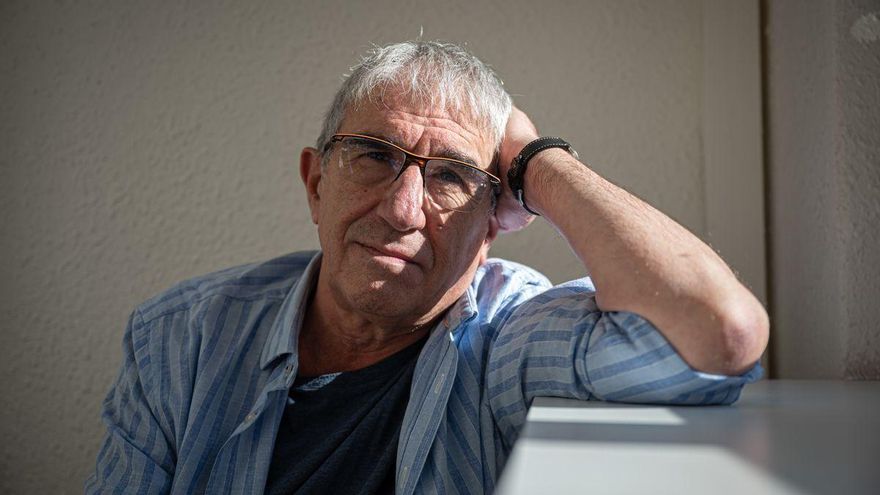
When the pandemic began to wear itself out, John Edward BuenavidesPeruvian writer who settled in Tenerife and then went to live in Madrid, writing novels and giving classes on how to make them, he wanted to entertain Alfredo Bryce Echenique, who was in town. Then he notified some friends who are common and those of us who were summoned arrived punctually. of their respective countries, one with Chilean punctuality, another with equally Peruvian punctuality, and so on.
I was the first to arrive, but I did not go up to the house because under the drizzle of indecisive weather, it seems to me that it was beginning the fall of 2021, a call rang on my mobile that I immediately took, since it was from Joan Ollea long-time friend, with whom I collaborated so that he would stage The truth of the lies one of the great exponents of Mario Vargas Llosa as an essayist. About Joan, accused by those who were her students of having committed sexual abuse in the theater school that he directed in Barcelona, weighed an already long and terrible suspicion that was finally clearing up. Although not completely, although there were loopholes of a judicial nature, which are even lighter than the suspicions that society feeds, Joan was certainly more liberated in that communication that took place, in my case, in the rain.
I was so relieved so hopeful of the future that lay before hima 65-year-old man, a great professor at theater, a top-flight playwright, who was already working on new projects, waiting for bigger ones to come along when, behind what had happened to him, a desired relief would come to him. He wanted, he told me, to bring together writers and journalists to discuss what they knew before students or professionals who met weekly or online or in person. He wanted my contest, surely because I had helped him in another time in that task of raising (as they say in the theater) that project by Mario Vargas Llosa that later, among others, they made possible in Madrid and Barcelona (and in other capitals) Basilio Baltasar and Sergio Vila-Sanjuán, who now, by the way, has just published a book about the experience of bringing into the theater someone who was previously an author or an amateur and who was now, as a full-time actor, a performer who measured himself with the odd Aitana Sánchez-Gijón.
That it was an experience that made us friends. He was a wonderful human being; he had the joy of always being cheerful, even in difficult circumstances during the development of that project. I imagine how difficult his fencing was with the complaint that he had to answer, with good lawyers, at least with a great lawyer, Javier Melero, who is also a formidable writer and a good person.
In that time of greatest difficulty in life, I had some conversations with Joan, in which I encouraged her to hope that the future would be different. But in no case does it seem sufficient afterwards, when life skids, that hand on the shoulder, because all of us, those of us who love, those of us who want to love, would have to be able to go further in affectionbecause whoever suffers never fully tells you, cannot say or does not know, how much he needs that word that, in the Scriptures, has a beautiful, impressive translation: “One word from you will suffice to heal me.”
Who has not suffered slander, which is what happens after the assumption or the complaint; who has not seen other people’s affections diminish when someone portrays you upside down and goes with that perverse melody singing a song of hate or slander. Joan Ollé perceived from near and far that sadnessbecause one of the great moral flaws of humanity is the amount of suspicion that accumulates when no one dares to stop the one who comes to you with the addition of suspicion.
He lived that moral horse of hatred from within his job, those doors that were his life were closing on him, and the surroundings became barbed wire to which the great journalist Eugenio Scalfari referred (he reminded me in a message journalist and teacher Chelo Sánchez) directly from Twitter when she spoke of the Assault on the limits of intimacy…
Although his defense could not be as thick as the attack, he told me in that call, that it would be the last of our lives, he was willing to return to the theatrical battle, I had some projectshe opened up to others, and among them he wanted that discussion about life and journalism to take place, which he was proposing to me while people arrived at Benavides’ house, to wait for Bryce Echenique… He never came, he had the wrong time , of date, had been wrong, like Alberti’s pigeon…
The news of the death of Joan Ollé left all of us who knew him and treated him in a state of great sadness. The word sadness is not an accident that one finds on the keyboard when he wants to describe his own state of mind, or another’s. It is the one that says the most of all the adjectives that discomfort has, because the moral problem of our time, of all times, is the sadness of peoplehow to alleviate it, how to combat it, how to fight against it when it is not only justice that is at stake, but life.
Joan Ollé’s death has antecedents, like all deaths, and among those that precede her own death is, without a doubt, sadness. That is the sadness with which his face and his voice faced the decision to show joy when, inside, he was being affected by the worst news of his life, the most notorious, the one that that evening when he called me also seemed to be the inauguration of another joy. Of the last joy.
















